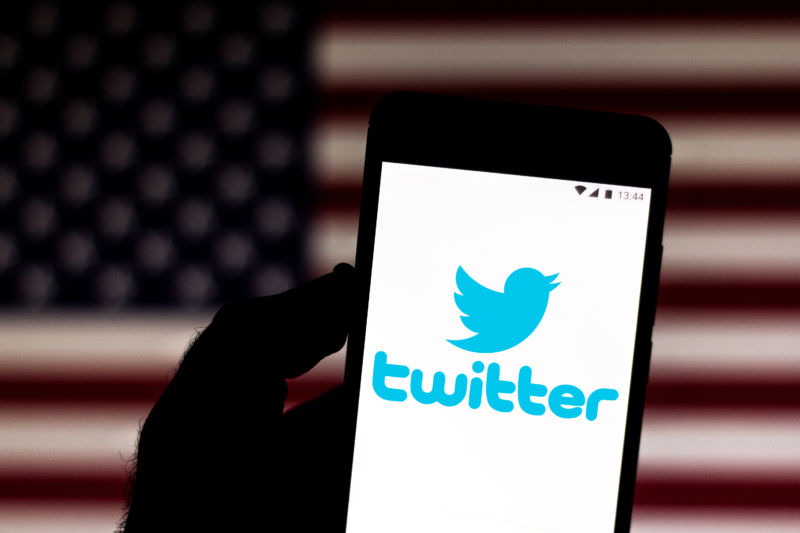
Enlarge/A Twitter logo displayed on a smartphone.
Twitter might be the president’s favored platform and a valued way for candidates to spread their messages far and wide, but starting next month, elected officials and candidates alike are going to have to make sure all that traffic comes organically. That’s because they won’t be allowed to pay for political advertising.
Twitter CEO Jack Dorsey has apparently taken a look at thecontroversycurrently embroiling Facebook and decided he wants no part of it.
“We’ve made the decision to stop all political advertising on Twitter globally,” Dorsey announced in, naturally,a tweet.
He framed the choice as an opportunity for anyone with a message, rather than a penalty, adding, “A political message earns reach when people decide to follow an account or retweet. Paying for reach removes that decision, forcing highly optimized and targeted political messages on people. We believe this decision should not be compromised by money. “
The ban applies not only to candidates and their campaigns but also to “issue ads” by any group, Dorsey continued, since those “present a way to circumvent” the ban on political advertising and would present a situation where “everyone but candidates” could pay to have their view on an issue promoted. He also added an apparent dig at Facebook:
For instance, it’s not credible for us to say: “We’re working hard to stop people from gaming our systems to spread misleading info, buuut if someone pays us to target and force people to see their political ad. .. well … they can say whatever they want! 😉 “
“This isn’t about free expression,” Dorsey went on. “This is about paying for reach. And paying to increase the reach of political speech has significant ramifications that today’s democratic infrastructure may not be prepared to handle. It’s worth stepping back in order to address.”
Direct challenge
The stance comes in direct opposition to social media leader Facebook, which explicitly exempts bothpostsandadvertisementsmade by politicians from its community standards and fact-checking process .
Facebook CEO Mark Zuckerberg has repeatedly doubled down on his company’s position amid a firestorm of criticism from lawmakers, political candidates, and evenemployees. In a congressional hearing last week, Rep. Alexandria Ocasio-Cortez (D-N.Y.) Directly challenged Zuckerberg on the company’s policy.
“Do you see a potential problem here with the complete lack of fact-checking on political advertisements?” Ocasio-Cortez asked.
“Well, congresswoman, I think lying is bad,” Zuckerberg replied. “I think if you’re gonna lie, that would be bad.” But that would be different from preventing people from “seeing that you had lied,” he tried to explain.
“So you will take down lies, or you won’t take down lies? I think this is a pretty simple yes or no, “she pressed.
“In a democracy, I believe that people should be able to see for themselves what politicians that they may or may not vote down are saying, “he answered. Any actions Facebook might take “depends on the context” in which a dishonest piece of content is posted, he added.







GIPHY App Key not set. Please check settings